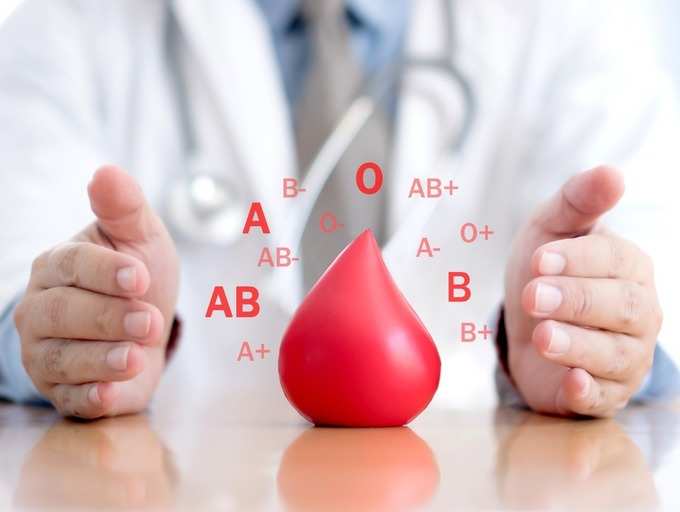Blood group 0+ least vulnerable to COVID-19; A, AB most likely to fall sick. We explain WHY
Blood group 0+ least vulnerable to COVID-19; A, AB most likely to fall sick

Over the course of the past ten months, we have come to discover that COVID-19, caused by the infectious SARS-COV-2 virus posits different symptoms for everyone, ranging from mild, atypical, moderate or more terrible ones. The severity can also differ based on parameters like age, gender, co-morbidities. Studies have also now proven that the likelihood of your COVID-19 condition also depends on your blood group. In fact, two recent studies have showcased that certain blood groups have a lower susceptibility to the infection and illness, while some are more likely to fall sick.
What have the studies found?
There have been a lot of studies which have researched the apparent link between blood group and COVID severity. One of the first researches to be published on the subject emerged in China in late March when it was found that 'type A' was more likely to develop grave symptoms of COVID-19, since 'type O' blood group had more proteins which limited the reactivity of the virus.
How does your blood type affect COVID risk?

The most recent study, which has been published in the journal, Blood Advances also drew a link between the severity of disease and health complications which have come to be associated with COVID+. Conducted among 473,000 individuals tested for COVID-19 to data from a control group of more than 2.2 million people from the general population. Scientists found that blood type O had a lower associated infection risk and organ complications if hospitalized. The severity and higher infection chances were found among those with blood type A or AB. Ethnicity was also a factor considered to weigh COVID risks.
Blood groups A and AB have higher chances of COVID severity

Interestingly, blood groups, A and AB were also associated with complications post-hospitalization, such as myocarditis, lung injury and renal damage. It was observed that people with blood types A or AB were more likely to require mechanical ventilation and oxygen support post COVID infection. The researchers also noted that people with blood types A and AB did not have longer overall hospital stays. However, they remained in the intensive care unit (ICU) for longer on average.
Another study, done in Spain compared the outcomes of 1900 severely ill COVID+ patients with 2000 healthy, non-sick patients. There again, it was observed that of all blood group types, blood type O (positive or negative) was the most 'protected' ones of all. Similar rates of infection were also present for other signs. For those who were inflicted by the virus, type A was 38 per cent, type B was 26 per cent, type AB was 10 per cent, and type O was 25 per cent.
How will this study help?

While there is still no accurate predictor for what COVID-19 will be for you, scientists do believe that studies like these, done on a larger scale will be able to get the more vulnerable categories access to healthcare on a priority order. Author of the study, Mypinder S. Sekhon, MD, of the University of British Columbia added,
“Of particular importance as we continue to traverse the pandemic, we now have a wide range of survivors who are exiting the acute part of COVID-19, but we need to explore mechanisms by which to risk stratify those with longer-term effects.”
Scientists also believe that researches like these would be able to map out more such severe complications associated with the disease, post COVID symptoms as well.
Does your blood type really garner protection against the virus?

It's not the first time a particular blood type has been associated with severe disease prognosis. Science suggests that different blood group types make a difference in the way blood is clotted in the body and also impact the circulatory system. Similar differences have also been observed in intestinal diseases and varied blood groups.
Epidiomoligists have also noted that blood groups also play a role in other physiological settings and viral patterns.
While it is still being researched, in relation to the COVID-19 pandemic, factors like these, including blood clotting and gut trouble could likely play a role in predicting disease severity and infection risk.
So, does this mean blood group O can be worry-free?

Ever since studies have come out, experts have cautioned that the statements are likely to make some people, or those with blood group O complacent, while making those with blood group A or AB more worried. While studies continue to be reviewed, a study should not be reason enough for a person to take fewer precautions against disease. For one, the findings do not suggest, in any way that one blood group is immune to the disease. Hence, practising fewer precautions, or going scot-free is not going to help. Worse, it can endanger the lives of the ones around you.
Again, there are experts who suggest that more than the blood group a person has, factors like age and co-morbidity play a bigger role in impacting COVID severity.
Sanitization, disinfection and social distancing still remain the best measures to safeguard a person against infection.